

Published Tariff $1599
$ 1599.00 Only


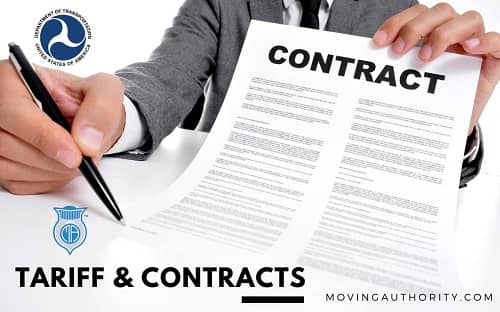
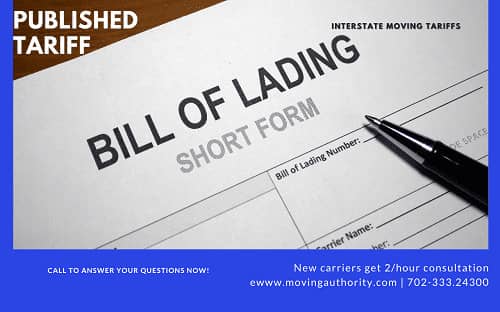
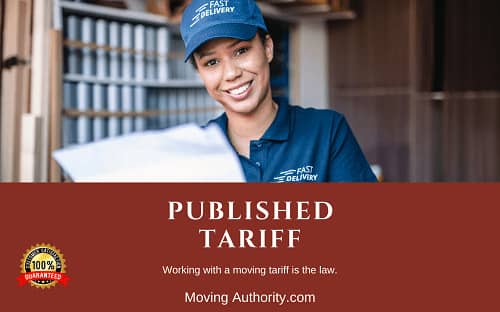

Product Code: 22
Product Description











Product Code: 22




Moving Companies Have Mandatory Laws Change with Tariff in June 2022. Don't stress we have you covered because we have made changes so that you are compliant. In your appointment, we will walk you through the new laws and how to navigate them.
Welcome to your number one source for generally published tariff information. January 1, 2008, was an important date for interstate carriers. That’s when the Surface Transportation Board put a new policy in place. The policy stated that carriers have to take part in collective rate-marking. Collective rate-marking is the same concept as collective tariff-making. This means that carriers do not have immunity. Instead, they now risk anti-trust prosecution. So, when can prosecution take place? It happens when carriers operate collectively with separate carriers using copied tariffs. Avoiding anti-trust prosecution is important. Otherwise, carriers will not have a good standing with the Department of Justice. This is why all carriers should use custom-published tariff services. Having published tariffs will help prevent legal problems from occurring.
Carriers are not the only entity that benefits from using published tariffs. The tariffs also provide consumers with advantages. That’s because there are options for charges related to line-haul services. In fact, there are tons of volume-based measurement options for published tariffs. Here are the four most common tariff charges.
1. Weight.
2. Cubic feet.
3. Cubic meters.
4. Charges by the hour.
These options get called "the menu of differing accessorial services." Each service should get marked at a competitive rate.
Why? So consumers have an incentive to book moves with a carrier company. Custom published tariffs will give customers plenty of controlled high-quality options.
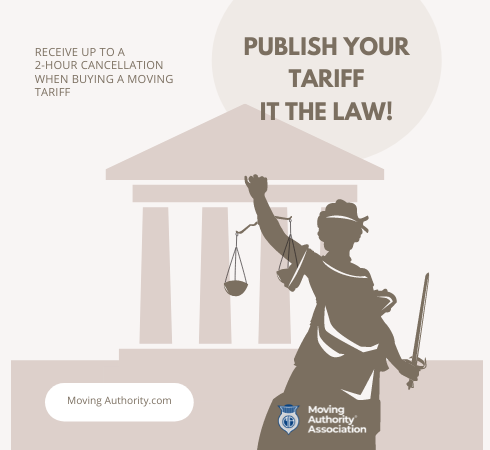
Published tariffs are legal documents. All interstate motor carriers have to publish the documents. So, why should they publish them? Here’s the main reason. Published tariffs convey provisions of the services provided by carriers. For example, your customers can learn the following information through published tariffs.
1. Your moving company’s exact prices.
2. The government regulations that your company adheres to.
3. The rules that moving companies follow.
4. The services that your company provides by common carrier.
5. The specific classifications within the published tariff.
6. The moving and transportation policies of your company such as distance price, Ect.
7. All other provisions of services that your board provides.
Keep in mind that carriers organization is bound by terms within each published tariff. A carrier has to provide access to the specific prices/services that each tariff lists like distance via weight & cubic footage, and state any rules pricing for a household goods shipper.
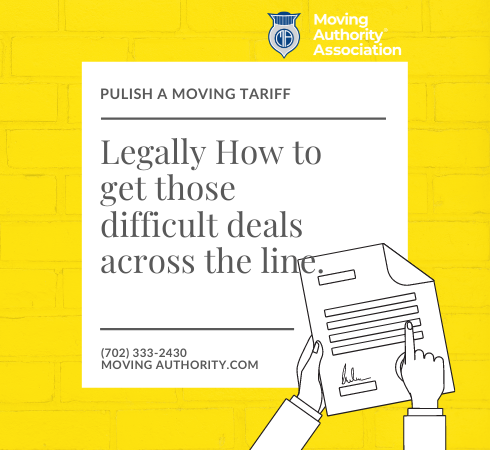
The use of published tariffs helps ensure that carriers stick to their exact rates. This means that each customer will get charged in a fair and ethical manner. Carriers should keep the following notion in mind. They cannot offer customers services that aren’t listed in their published tariffs. Plus, carriers can't charge consumers less/more than a published tariff rate states.
Each service charge must match the tariff’s rate is. Here is an example. Say a tariff price is $0.50 per pound for a 1,900 lb. cross-country move. This means the carrier has to charge $0.50 no matter what happens. That carrier cannot charge a penny more or a penny less. This concept refers to 49 USC section 13702(a)(2).

Carriers have options when it comes to making published tariffs. Here are the three most common actions that carriers can take.
1. They can compose their own tariffs.
2. They can subscribe to generic services for published tariffs.
3. Law-minded professionals can write individual-published tariffs on behalf of their clients. In fact, our organization takes care of #2 and #3 for many carriers across the United States for household goods tariff publication.
All published tariffs must adhere to relevant federal regulations. That’s why it’s often best for a third party to publish tariffs on behalf of clients. A third-party makes sure that carriers remain in great standing with the government. Professionals also ensure prices/services match the actions that take place during moves. Remember- if something is not listed in the tariff, then it shouldn’t happen. It’s as simple as that.
Leave a review
Take a few minute to give your value review about our product